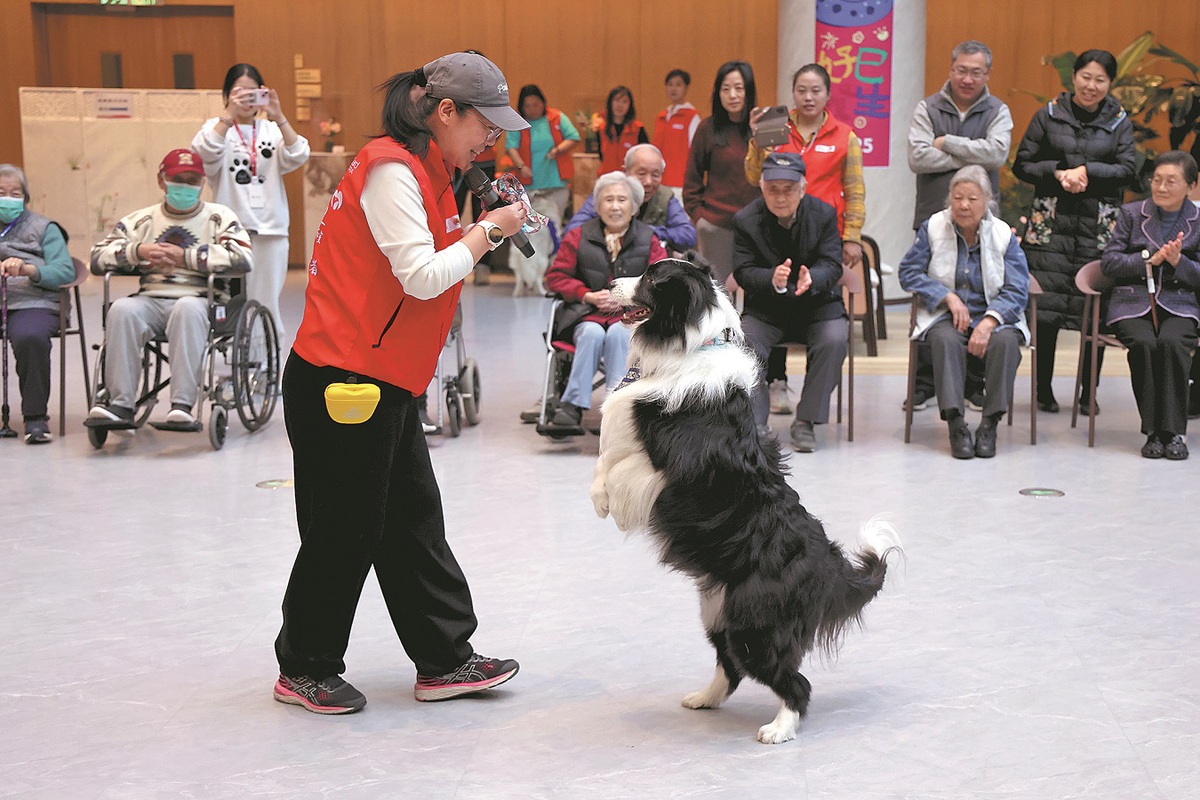When dogs become therapists
A growing army of trained animals is helping people — from autistic children to the elderly — enjoy more fulfilling lives






Every time Wu Jingyi asks her dog Lucky if she wants to go to work, Lucky springs up eagerly and jumps for joy. Some might agree that's a decidedly nonhuman response — at least for many working people.
Work for the 5-year-old female border collie in Shanghai is special. Lucky finished her training to become a therapy dog in August, and now she just takes care of people — relying on her acute canine senses and an unbreakable bond of love for the two-legged creatures in her custody.
Those in Lucky's workplace include not only disadvantaged groups and special care patients in nursing homes, but also people in schools and hospitals, where she helps teachers, students and healthcare workers to simply relax.
In recent years, everyone knows about police dogs and guide dogs. But now there are also therapy dogs, which have undergone careful training to help people with mental illnesses or autism, or an elderly person who may have cognitive impairments.
Paw for Heal, or PFH, is a volunteer therapy dog program founded by pet behavior expert Wu Qi in 2012. It aims to harness the social value of companion animals by training family pets to be capable of providing physical and emotional assistance to people.
"I started raising Lucky in early 2020 after adopting her from a stray dog shelter," said Wu Jingyi, the dog's owner, noting that she learned about PFH and Wu Qi through a WeChat group where people shared activities and information related to dogs.



















